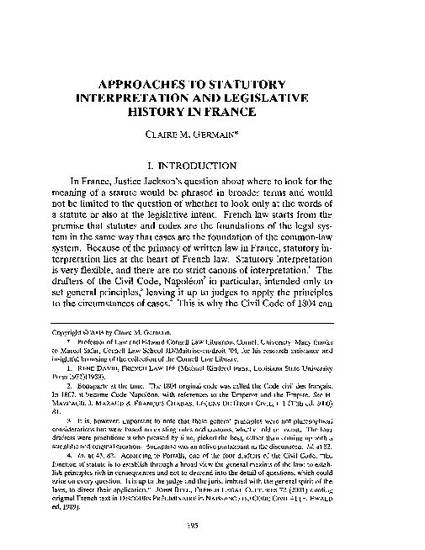
In France, Justice Jackson's question about where to look for the meaning of a statute would be phrased in broader terms and would not be limited to the question of whether to look only at the words of a statute or also at the legislative intent. French law starts from the premise that statutes and codes are the foundations of the legal system in the same way that cases are the foundation of the common-law system. Because of the primacy of written law in France, statutory interpretation lies at the heart of French law. Statutory interpretation is very flexible, and there are no strict canons of interpretation. The drafters of the Civil Code, Napoleon in particular, intended only to set general principles, leaving it up to judges to apply the principles to the circumstances of cases. This is why the Civil Code of 1804 can still resolve many of today's issues, such as those generated by automobile traffic accidents, that could not be anticipated at the time of writing. It is commonly understood that legislators cannot anticipate all situations and all difficulties that might arise from the application of legal texts. The meaning of statutes is not always clear. Moreover, the adaptation of texts to concrete situations may cause difficulties. Interpretation is needed on the meaning and scope of the text.
